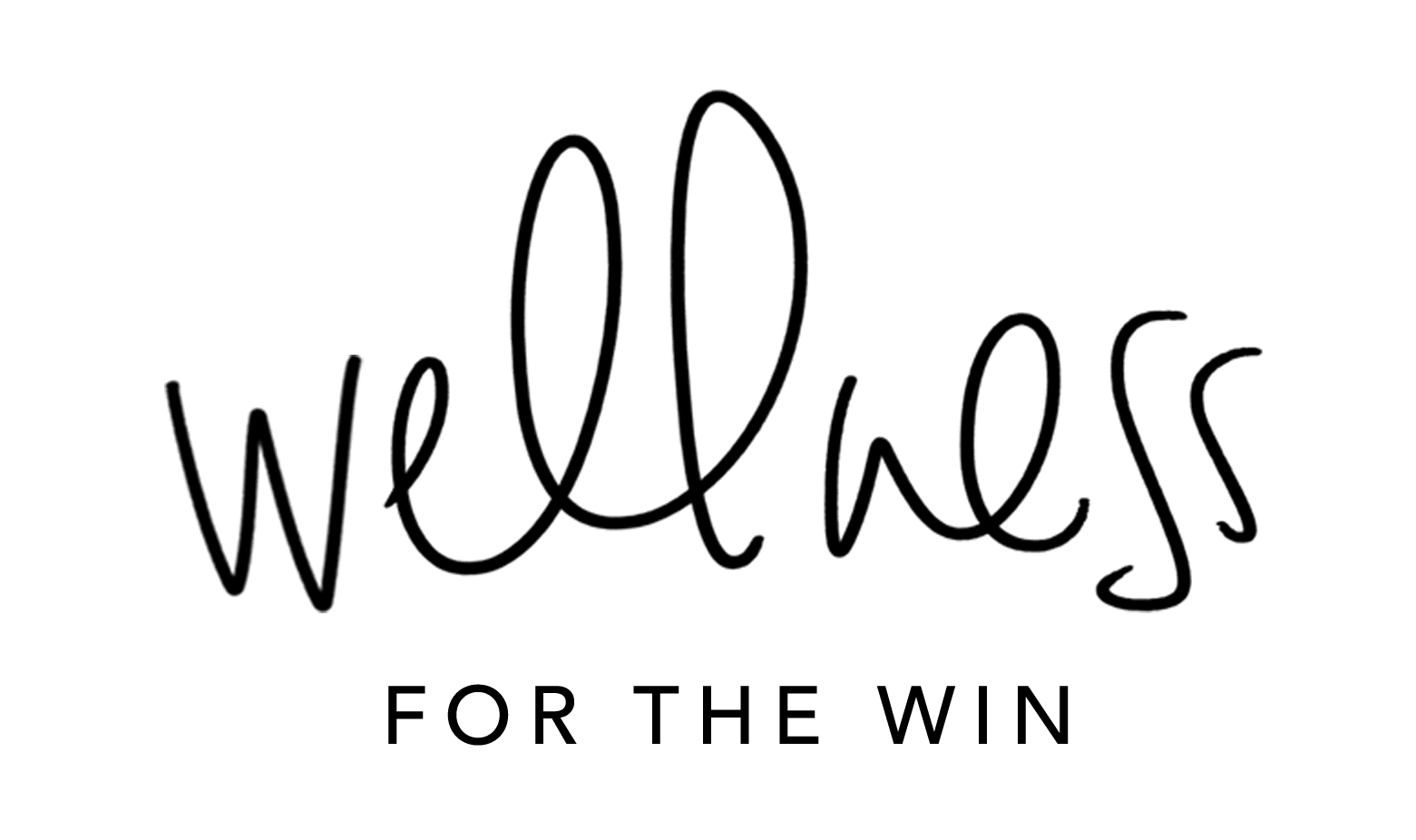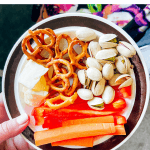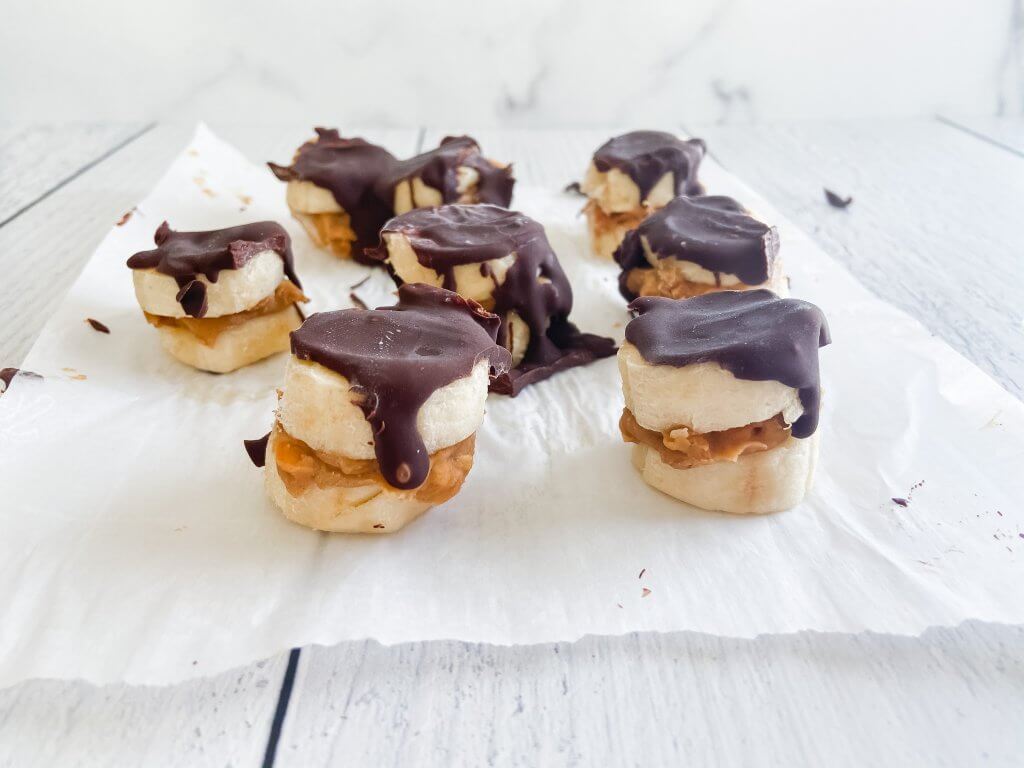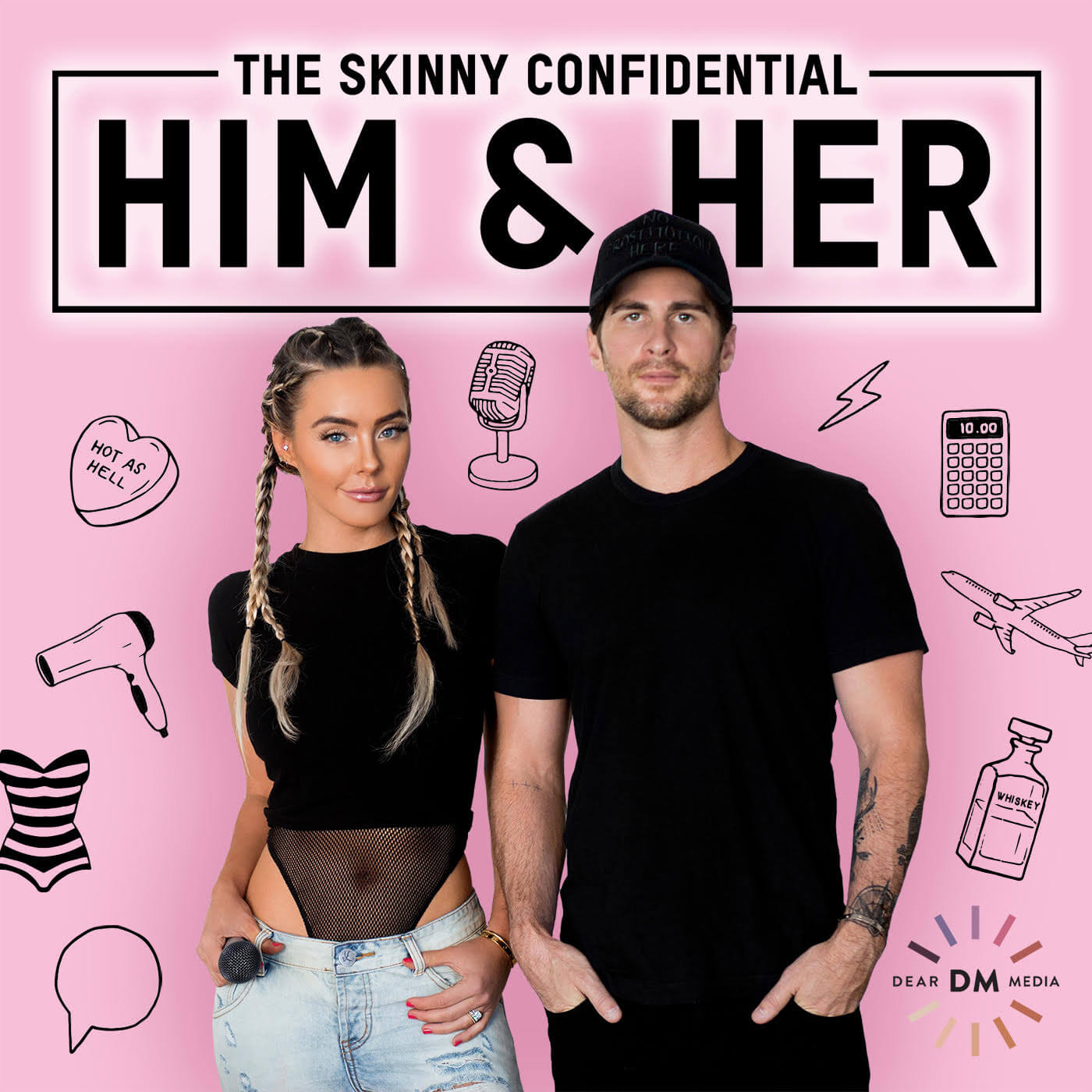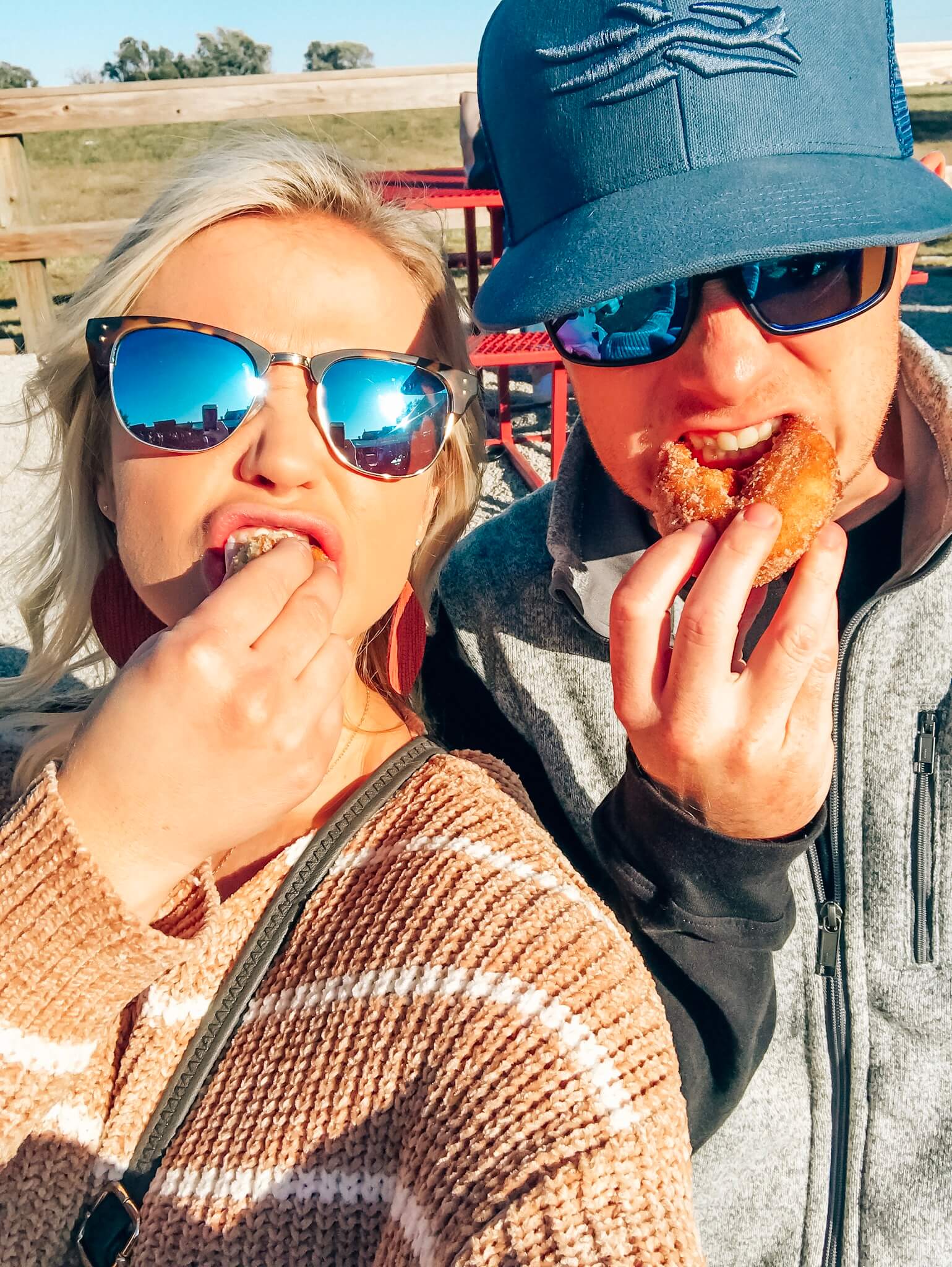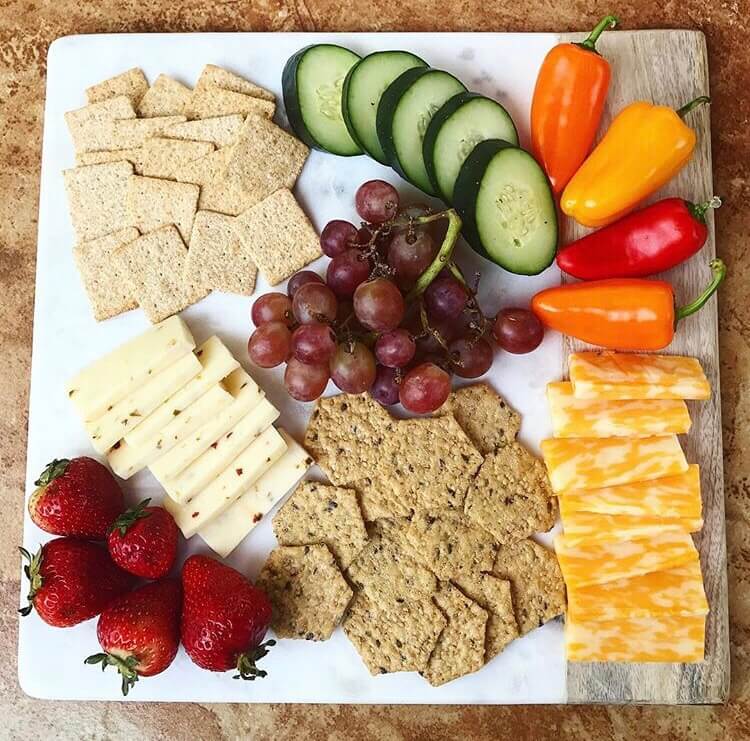Dietitian-Approved Healthy Snacks
In today’s post I’m sharing a long list of Dietitian-Approved Healthy Snacks + lots of snacking tips!
I get a lot of questions about healthy snack options, both on Instagram and when working with clients. Snacks often get a bad rap, but they don’t have to consist of your typical “snack foods” like chips, cookies, candy, etc.
While those foods absolutely have a place in our diets, they usually don’t provide the lasting energy or substance that we are looking for in between meals. I always say that snacks are a great opportunity to sneak in some bonus nutrition!
should you eat snacks between meals?
Other common questions: how many meals should I eat in a day? Should I include snacks between meals? Should I be intermittent fasting?
There is SO much information out there regarding nutrition these days, and I totally understand that it can get overwhelming. Shoot – even I feel confused sometimes!
With that being said, it’s not necessarily that you “should” eat snacks between meals; however, you absolutely CAN eat snacks without worrying about weight gain or poor health. Your overall diet and intake is what matters most, and every individual has unique nutritional needs.
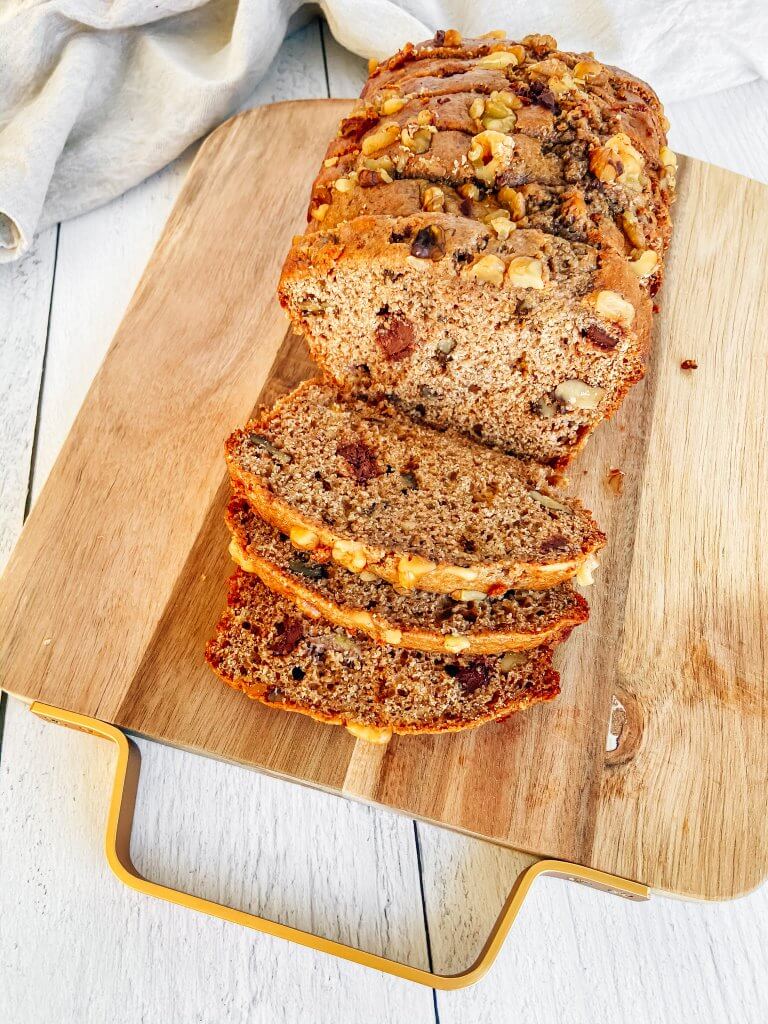
I find that a lot of people try to resist eating snacks, despite feeling hungry between meals, and as a result, are more prone to overeating at their next meal. If this is the case for you, you might consider planning ahead by packing some healthy snacks to bring to work or stash in your purse, etc. to hold you over until your next eating occasion.
In this case, eating snacks may actually assist with weight management if it helps you eat more appropriate portions at meals and reduces binging later on. Distributing your calorie intake more evenly throughout the day can help balance blood sugars and keep your energy levels up.
how many snacks should i eat in a day?
The answer to this will totally vary depending on the individual. Everyone has unique calorie needs based on their height and weight, age, gender and activity level. You may feel the need to eat two or three snacks one day and then not eat any the next. Our needs are ever-changing.
In addition, your eating pattern likely depends on your schedule and what’s most realistic for you. Some people might prefer eating 3 square meals a day; others may like having 6 small meals, or need to do so due to a certain health condition.
However, your schedule may not allow for that. Adjust accordingly and find which meal pattern works best for you and helps you feel your best.
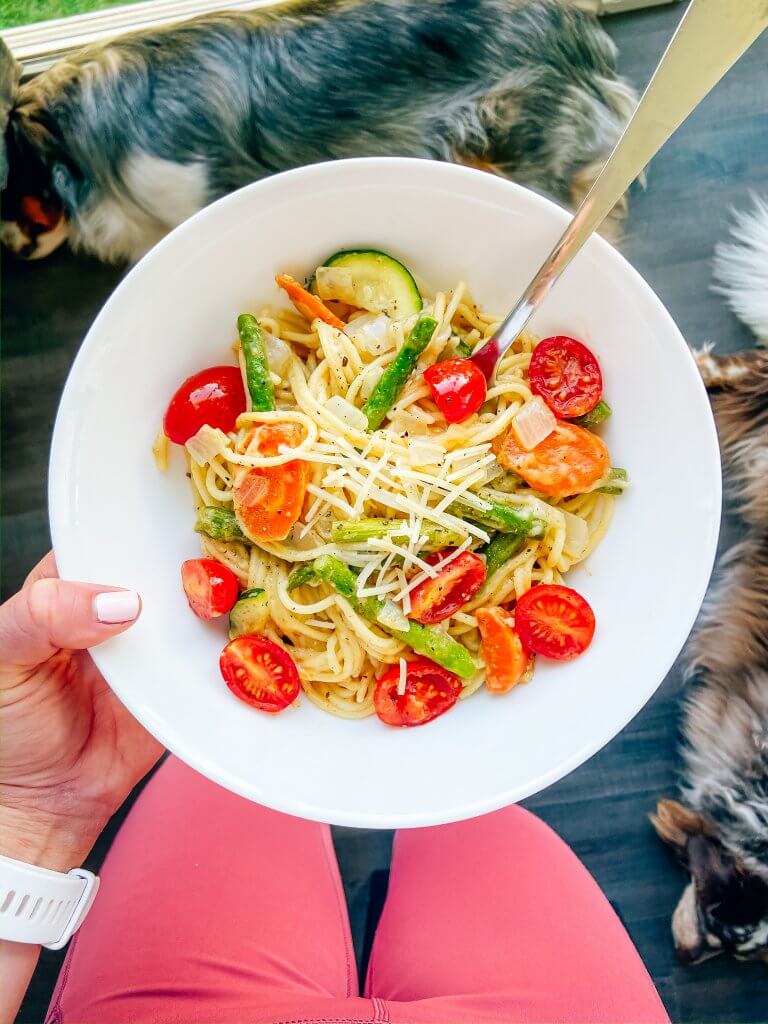
I talk a lot about intuitive eating, which at a very basic level encourages you to tune into your body’s hunger and fullness cues to help guide you as far as when, what and how much to eat, rather than making eating decisions based on external factors such as “calories remaining” or the time of day. Eating intuitively means honoring your body’s unique needs and cravings.
However, please know that this doesn’t mean you should NEVER eat when you are not physically hungry. Sometimes we eat simply because something looks good at the time, or because we won’t have another chance to eat for a while, or out of emotion, and guess what? That’s okay!
Emotional eating becomes a problem when it is something you are doing on a very regular basis as a coping mechanism, and you don’t have other coping skills in place to deal with issues going on in your life. That’s a post for another day. In the meantime, check out this post from Rachael Hartley on emotional eating in IE.
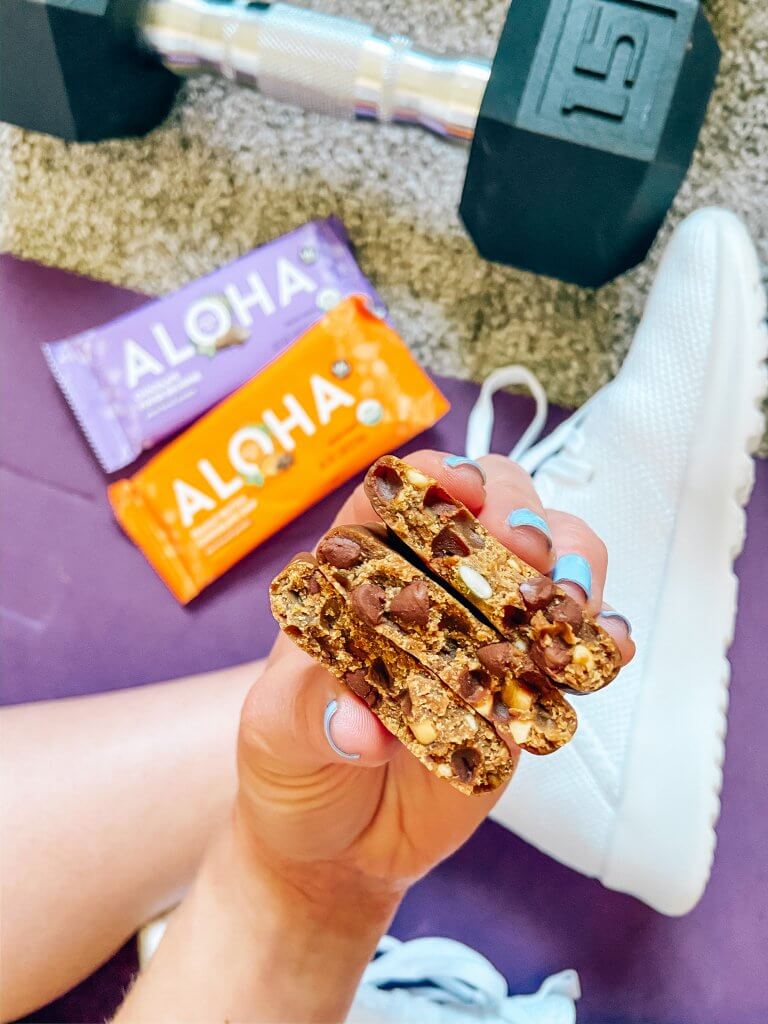
when should i eat my snacks?
Ideally, you should include snacks between meals when you feel hungry, OR if you know you won’t have a chance to eat again for several hours due to long meetings at work, etc. This is a time when you should not stress about eating when you’re not super hungry (in fact, you never should); sometimes it just makes sense to do so! That’s just being practical and preventing yourself from getting hangry.
You may have heard that late night snacking, or eating after 7 PM at all is BAD and should never be done. However, this is simply not true. Again, it goes back to your schedule and what is realistic for you. If you don’t have a chance to sit down and eat until later at night due to your work or personal schedule, that is more than okay.
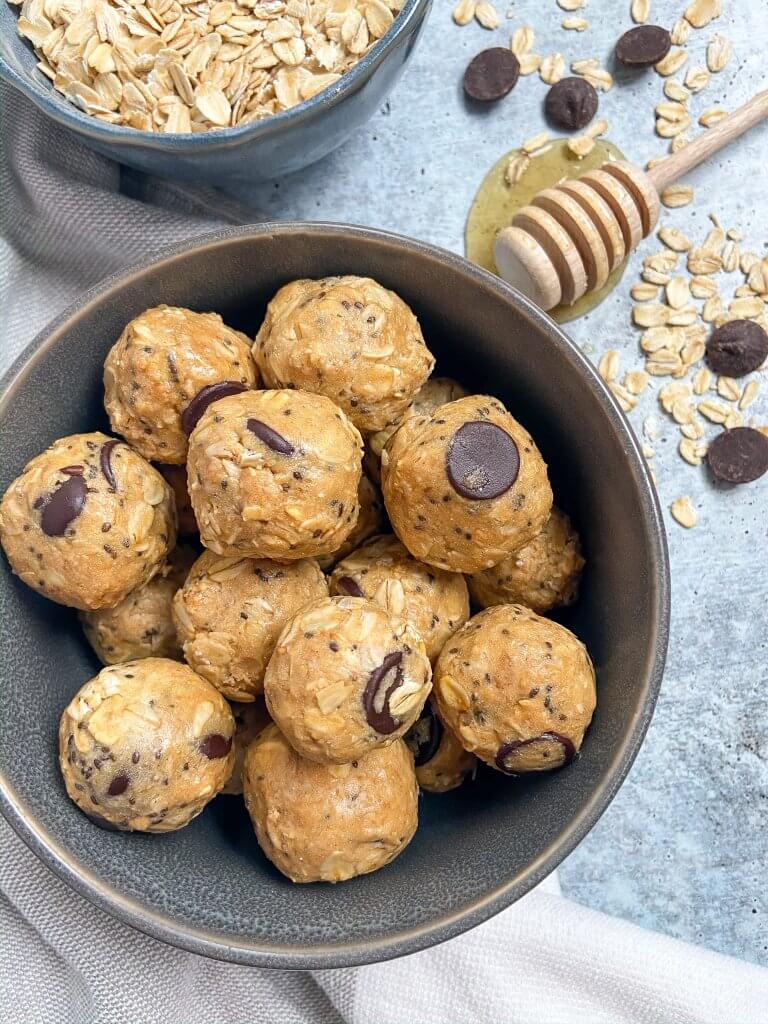
Late night snacking can be problematic at times because for many people it is mindless and not guided by true hunger, but done out of boredom or stress. Other times it is a result of restricting intake too much during the day, or eating meals that aren’t truly satisfying you. Check out this post for more tips on that if you feel that you are mindlessly snacking and/or binging in the evening on a regular basis.
what should a healthy snack consist of?
Snacks are essentially just mini meals, so my nutritional goals are about the same, but just a smaller portion.
Ideally, I strive to get a good balance of nutrients when eating meals and snacks and incorporate a combination of fiber (from vegetables, fruit and/or whole grains), healthy fat and protein.
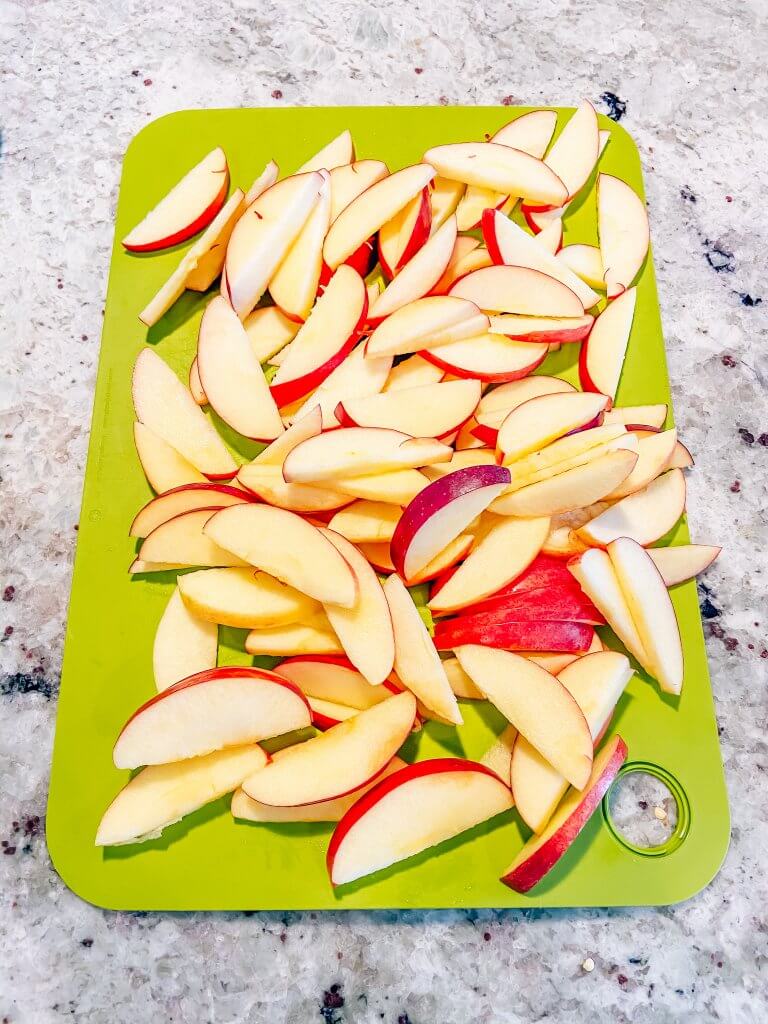
This combination will help you stay full and satisfied after eating, especially compared to snack foods that contribute mostly refined carbohydrates and/or sugar (i.e. chips, candy, cookies, soda, etc.). Those foods may provide quick energy, but will likely be followed by a blood sugar crash and dip in energy, leaving you feeling hungry again soon after, and likely craving more of those high sugar/fat foods.
The combination of fiber, healthy fat and protein helps to balance blood sugar and provide lasting energy without the crash, not to mention some quality nutrition! That’s a win-win!
what can i snack on all day without gaining weight?
I have gotten this question several times before, so I wanted to include it, and drive this point home.
We should not need to snack ALL day long. If you feel like you are constantly hungry, this could be a sign that you’re not eating adequate calories in general, or you’re not eating balanced or satisfying meals. It could also mean something more serious is going on, such as poor absorption/digestion of nutrients, or a thyroid, blood sugar, or other health issue.
If this is the case for you, I would recommend seeing your doctor and/or a Registered Dietitian to do some investigating.
who might benefit from including snacks between meals
People who are very active, especially athletes, may benefit from snacks between meals in order to help meet increased energy demands.
In addition, people who can only tolerate small, more frequent meals due to a health condition should consider snacks and/or mini meals throughout the day — this may be especially relevant for people with GI/digestive issues, early satiety, a history of gastric bypass surgery, etc.
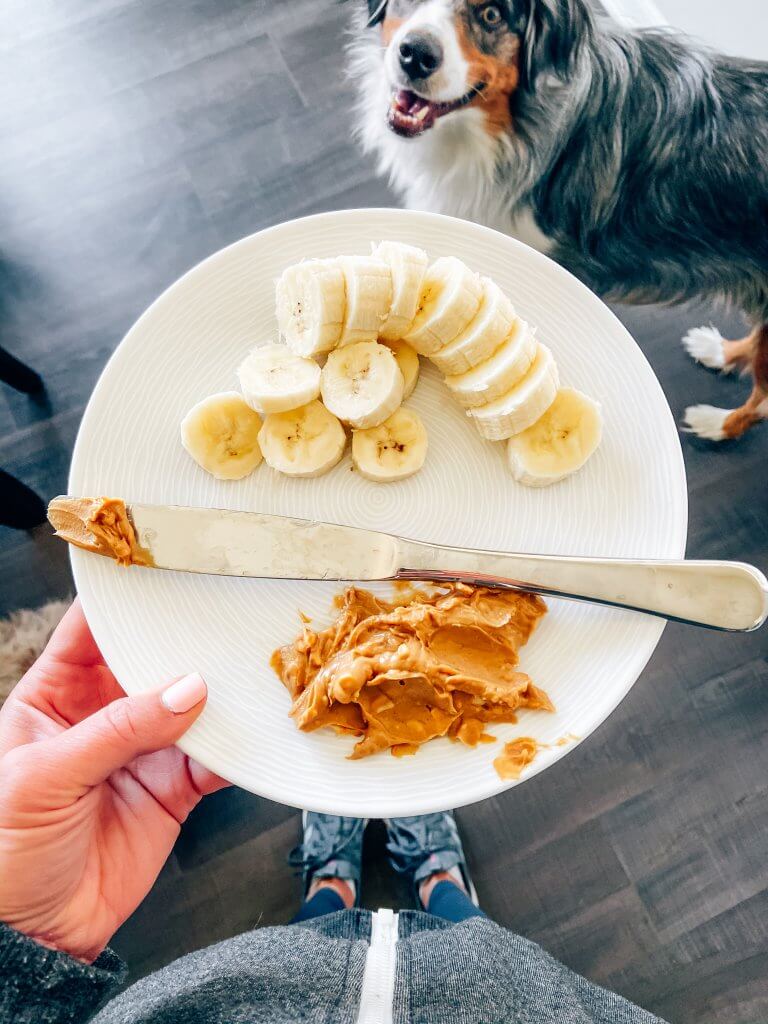
People with blood sugar issues may also need to consider adding in snacks, and those with diabetes should either keep glucose tablets, juice or something high in carbs handy in case of a low blood sugar.
But truly, everyone can benefit from snacks at times. Again, try to listen to your body’s hunger & fullness cues to guide you, and don’t shy away from snacks if you feel the need to eat something between meals. That is your body’s way of telling you what it needs!
dietitian-approved healthy snacks
Now I am sharing a list of some of my favorite snacks!
- Cabot Cheese — my favorite brand of cheese! Most of them are lactose-free, which is great for people who can’t tolerate lactose! My favorite flavor is Seriously Sharp Cheddar, but they are all amazing! I like to pair it with 100% whole grain crackers or nuts.
- Homemade trail mix
- Pistachios
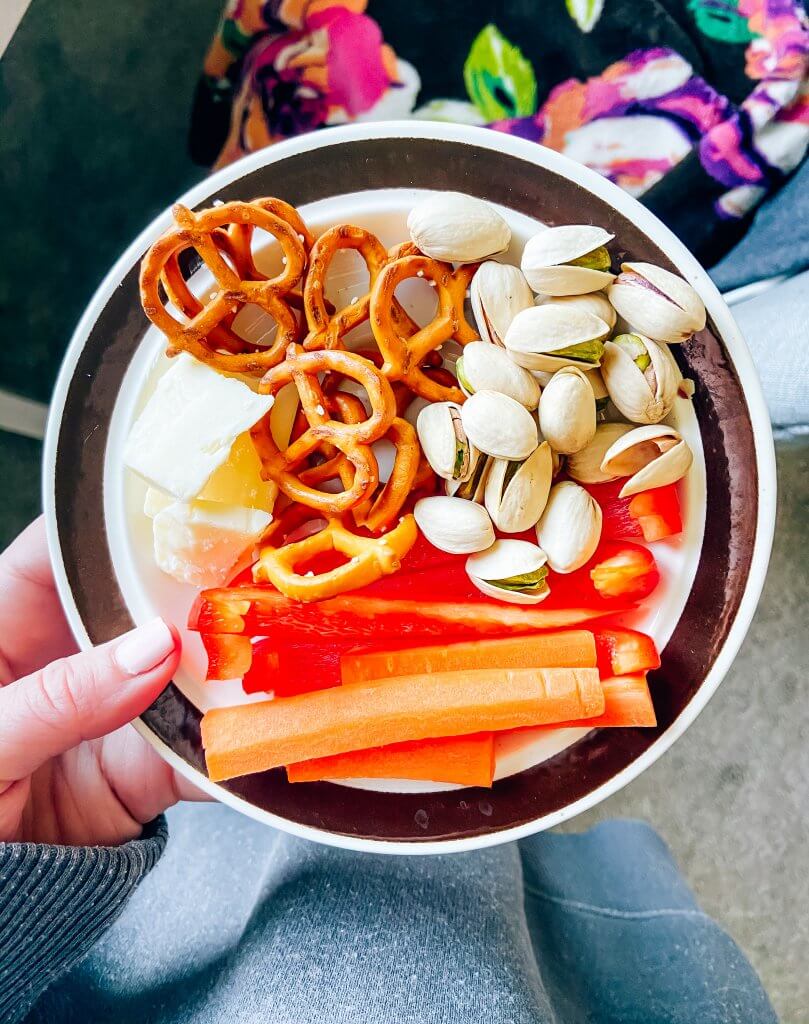
- Mixed nuts
- Unsweetened dried fruit (especially mango) paired with nuts or cheese
- Freeze-dried fruit (no sugar added)
- Plain Greek yogurt with berries and whole grain granola or nuts/seeds
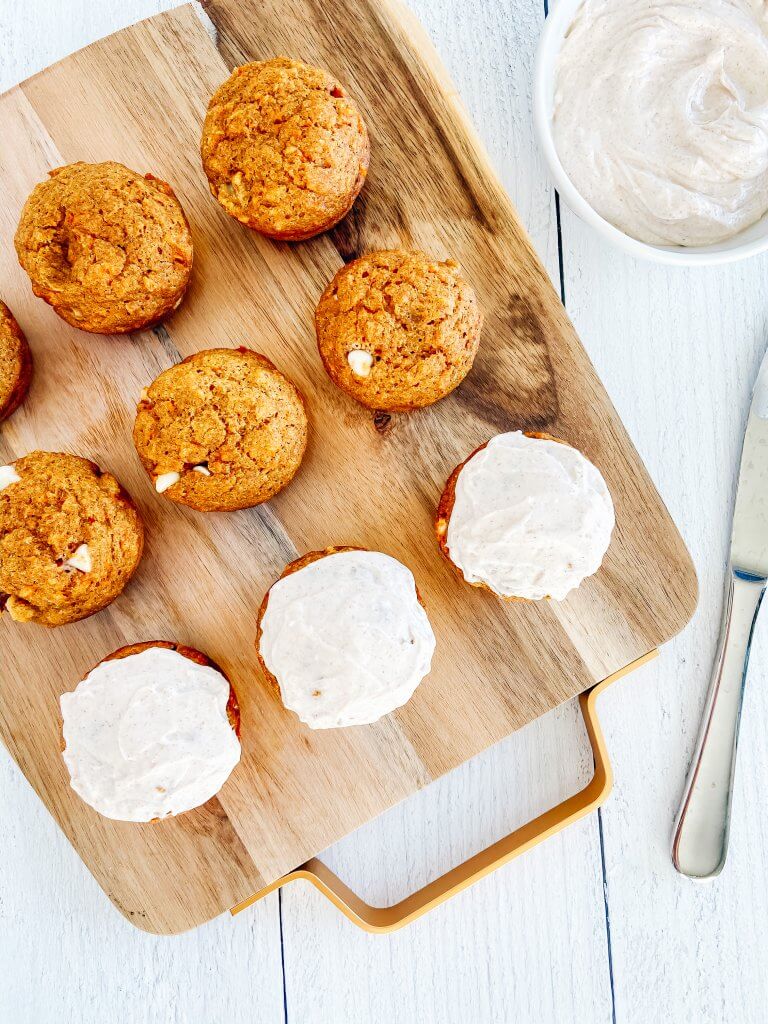
- Banana or apple slices with peanut or almond butter
- Hard boiled eggs
- Unsweetened applesauce with cinnamon
- Homemade baked goods: no-bake energy bites, healthy banana muffins, carrot pumpkin muffins
- Healthy granola bars – some of my favorites are: KIND Snacks, G2G Bars, Balance by Bistro (whey protein bars), Aloha Moment plant-based protein bars, Perfect Bars
- Roasted sweet potatoes with almond butter (don’t knock it ’til you try it!)
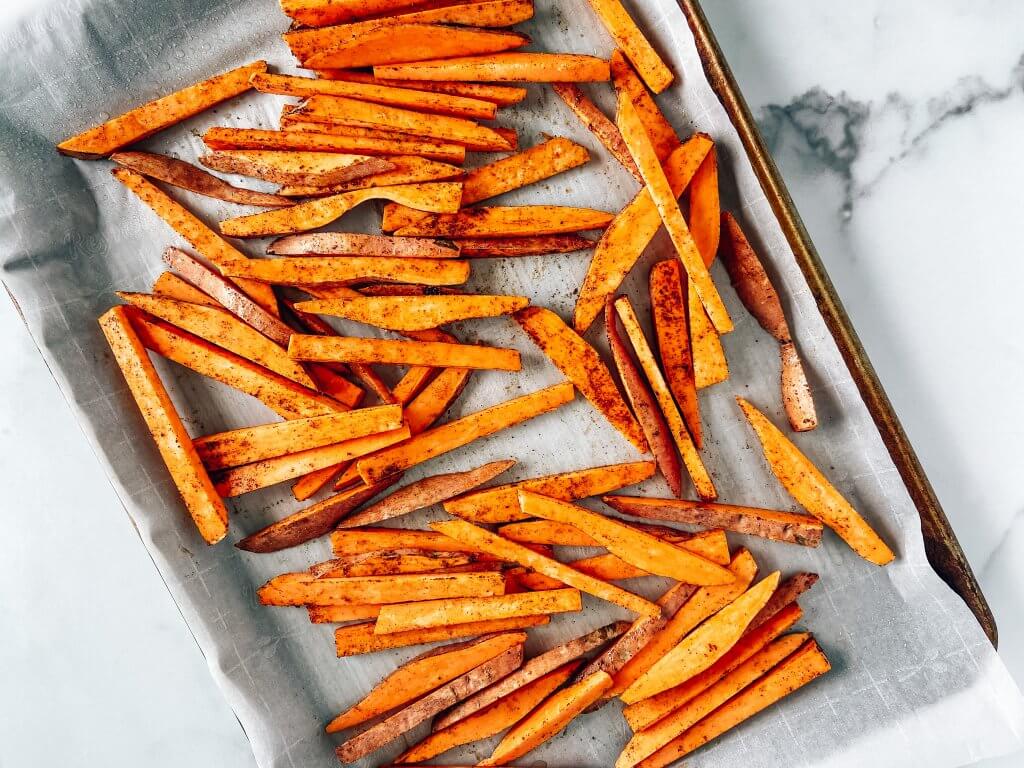
- Hummus with carrots or bell pepper strips, or whole grain crackers
- Cottage cheese + fruit or veggies (I’m not a fan of this but it is a good, high protein option that my husband loves!)
- Daily Harvest bites: use code wellnessforthewin for $25 off your order #affiliate
- Black Bean Brownies: these are so delicious – trust me!
You can absolutely include sweets in your diet, even ones that are not “healthified” like black bean brownies. Regular brownies are MORE than okay, too! (Or cookies, cake, whatever sweet foods you love). The more we restrict these foods, the more likely we are to binge on them eventually. Give yourself permission to include these foods and you will likely be satisfied with a smaller amount!
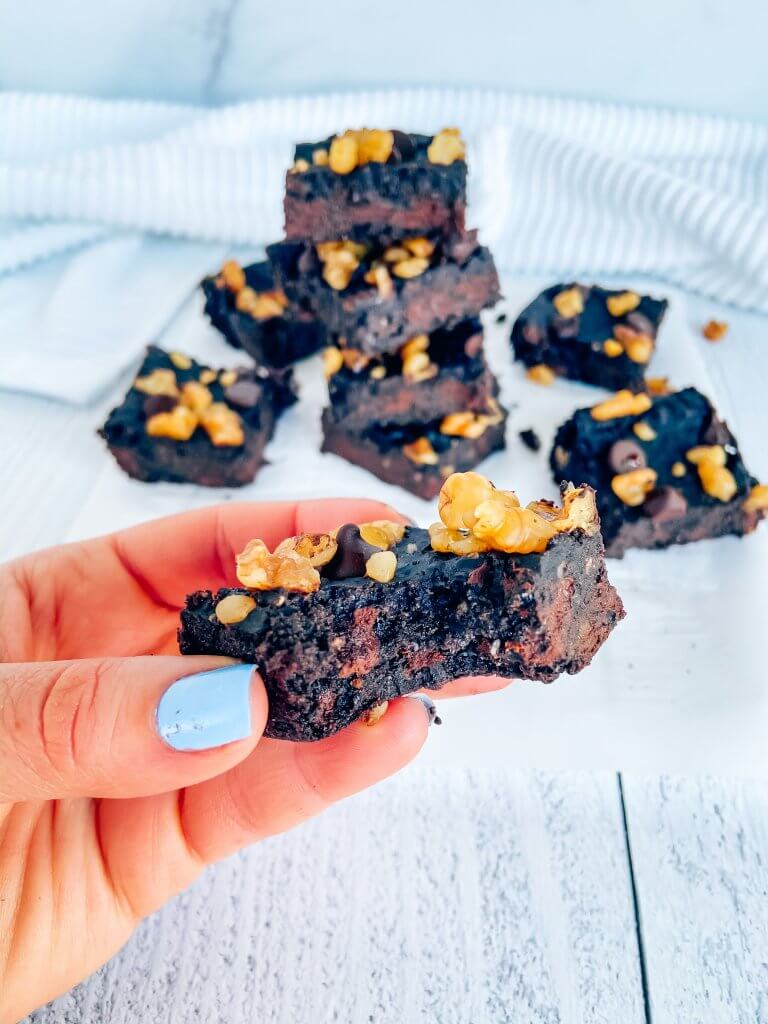
healthy snacking summary
Again, I want to emphasize that we all have unique nutrient needs, so try not to compare your food intake to anyone else’s, especially on social media, because you rarely see the full picture! Pay attention to YOUR body and YOUR needs — you can trust your body! It takes time to get to this place, but I promise it is possible to get there.
Check out more of my posts on intuitive eating and food freedom if you are interested in learning more.
I hope this post helped address any questions you had regarding snacking, and gave you some ideas of Dietitian-Approved Healthy Snacks that you, too, can include in your diet! Did I list any of your favorites? Did I miss any big ones?! Let me know in the comments!
As always, let me know if you have any questions!
Happy snacking! 🙂
Shanna
